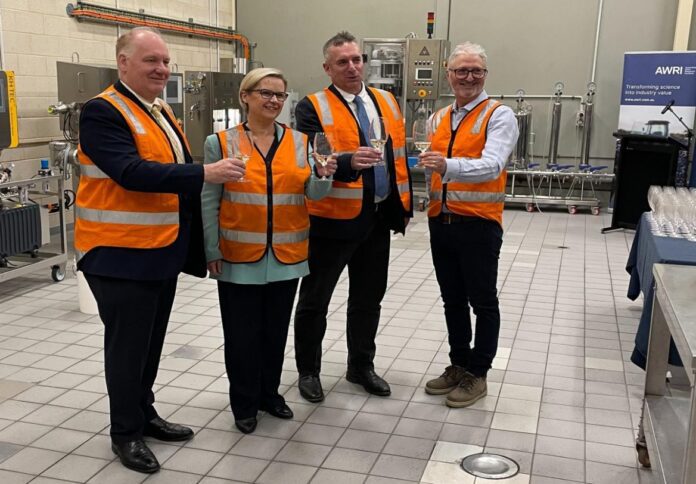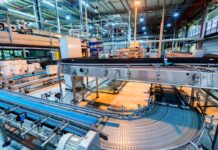
South Australia’s winemakers will be at the forefront of the emerging no and low alcohol (NOLO) wine market in Australia and the world, with the establishment of a world-first trial scale facility in the University of Adelaide.
The project, supported by a $1.98 million investment from the SA government, is a partnership between the University of Adelaide, the Department of Primary Industries and Regions, and the Australian Wine Research Institute.
South Australian wine businesses will be able to access technology and knowledge to develop new high-quality NOLO wine products at a reduced cost through the facility, providing the opportunity to sample and enhance new wine products in a low-risk setting.
Canning and bottling capabilities are also available, allowing successful trial items to be packaged and used for consumer or trade samples, market research, and export samples.
Professor Anton Middelberg, deputy vice-chancellor and vice-president of research at the university said, “The University of Adelaide prides itself on its innovative oenology and viticulture research that extends over the whole of the grape and wine value chain.”
Middelberg added that approximately 70 per cent of Australian wine research takes place at the University of Adelaide’s Waite campus.
He said that there is enormous growth potential in the no and low-alcohol wine sector, in which researchers will play a significant role.
The facility’s centrepiece, according to Associate Professor Paul Grbin, head winemaker at the University of Adelaide, is a FlavourTech spinning cone column, a type of low-temperature vacuum steam distillation regarded the “gold standard” for NOLO wine production.
“The scale of the unit is vital as it will allow research and new product development trials to use as little as 150 litres of wine – far less than commercial scale equipment which has a minimum throughput of 10,000 litres,” Grbin said.
He added that this will help industry and researchers because it will reduce development costs and give them more chances to test new processes that will produce better products in bottles.
Meanwhile, Minister for Primary Industries Clare Scriven said the state government know the value of the wine industry, adding that, “we are supporting this vital industry to continue to innovate and diversify.”
Moving forward, the initiative could eventually result in a skilled, specialised workforce and enable the industry to take advantage of significant market opportunities.




















